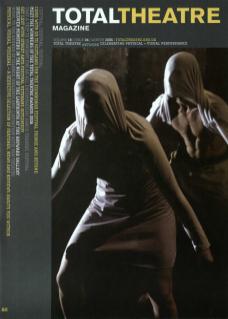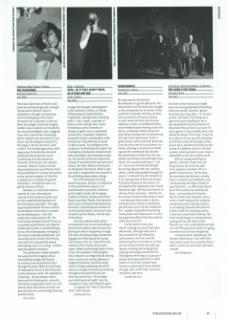The classic dynamics of Romeo and Juliet are exhilaratingly and movingly transposed in Keenan-Dolan’s adaptation, through contemporary social stereotyping in the social microcosm of a suburban cul de sac. When the uptight, distinctly haughty middle-class residents are invaded by the sexually profligate, beer-swigging chavs who colonise the menacingly police-taped house next door (a nice touch: has this played out before?), the stage is set for Channel 5-style conflict. The clichéd oppositions offer large scope for brilliantly observed and physically bombastic social commentary and the expressive character interactions are superbly nuanced. Keenan-Dolan’s closely observed direction never flinches from the possibilities for comedy and pathos as the central metaphor of the title is played out in a battle for garden supremacy – the perfect lawn or a garish intrusion of flora.
However, it is when the obvious comedy of cross-dressing and ridicule of the characters gives way to more sophisticated glimpses of the characters portrayed – the rage suppressed beneath the taut control; the boredom and loneliness masked by the flamboyance – that this production really starts to fly. The central duet between Rachel Poirier as a superbly boyish Romeo and Daphne Strothmann’s Juliet is heartbreakingly lyrical, the choreography managing a fine balance between playfulness and sensuality which evolves effortlessly, naturally into a beautifully played lovemaking scene on a swing – another aptly thoughtful metaphor.
This production makes palpable the sense that the tragedy whose inexorability charges the flashes of violence and sexuality that dart through the piece offers the only hope of redemption for all of the characters in this dystopian world. Yet redemption is fleeting – the grotesques which dominate this flamboyant, colourful, ultimately recognisable vision can only destroy both themselves and the rare beauty which has unknowingly flowered between them.

